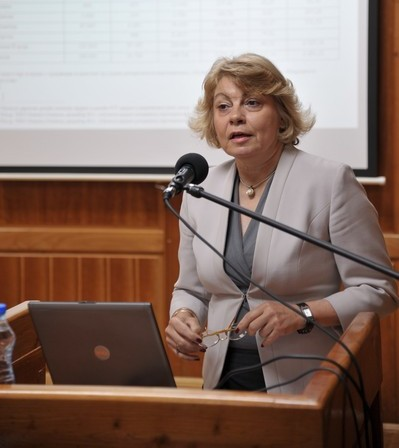

Captured delegates? Elvin Lako (Albania) with Safet Emruli and Goran Gerasimovski (North Macedonia) attending the 2019 European Inventor boondoggle in Vienna.
By a curious irony of history, three of the West Balkan countries which have so far failed to establish their "rule of law" credentials to the satisfaction of the European Commission have nevertheless managed to enter into the ranks of the EPO's contracting states, namely:
"Both the North Macedonian and Albanian delegations invariably supported Battistelli's despotic and liberticidal agenda at the EPO in an entirely subservient and unquestioning manner."Although those states - or at least their governing elites - have undoubtedly benefited from EPO membership in the form of "cooperation project" funds, it remains an open question as to whether their accession has produced any positive contribution to the governance of the organisation.
In the case of North Macedonia and Albania it can safely be said that they belonged to the "large group of smaller countries" which Benoît Battistelli had under his sway and was able to influence to the detriment of good governance and the rule of law at the EPO, as publicly reported by the Netherlands delegation back in April 2017.
"At the same time, it is by no means inevitable that states which have so far failed to qualify for EU membership will end up being represented by "captured delegates"."Both the North Macedonian and Albanian delegations invariably supported Battistelli's despotic and liberticidal agenda at the EPO in an entirely subservient and unquestioning manner. There is no record of them ever having voiced dissent or expressed criticism or concern in connection with his excesses and abusive treatment of EPO staff.
At the same time, it is by no means inevitable that states which have so far failed to qualify for EU membership will end up being represented by "captured delegates".
For example, on the EPO's Administrative Council, the Serbian delegation frequently took issue with Battistelli's proposals.
Regional rivalry between Serbia and Croatia may have played a role here.
"For example, on the EPO's Administrative Council, the Serbian delegation frequently took issue with Battistelli's proposals."Rumour has it that the Serbian delegation was piqued by the controversial preferment of Željko Topić as EPO Vice-President in 2012.
Following this perceived affront, it is reported that they often opposed Battistelli and even voted against some of his proposals, or at least abstained from giving a positive vote as an expression of their discontent.

Non-captured delegate: Branka Totić, head of the Serbian delegation, known to have opposed Battistelli on a number of occasions.
"In the meantime, Željko Topić has departed from the EPO and returned to his old stomping ground in Zagreb where he now masquerades as a "European Patent Attorney", despite the fact that official records confirm that he never actually managed to pass the European Qualifying Examination."Human nature being what it is, no country or region can be accused of having a monopoly on corruption just as none can claim to be immune. Corruption is present in all societies. The real issues at stake here are what forms of corruption typically exist, and whether the societal mechanisms for countering them are sufficiently robust and effective in practice.
In the case of the EPO and its Administrative Council, the facts on the ground confirm that the problem of "captured delegates" is not restricted to representatives from specific regions or countries.
Delegates from fledgling democracies which lack a functional rule of law, such as the states of the Western Balkans, are likely to be more susceptible to "capture". But as the case of Serbia shows, exceptions to this general rule have been known to exist.
"In the next part, we will take a look at some further instances of "irregularities" which have led to the sudden and unexpected disappearances of Administrative Council delegates."On the other hand, there are plenty of indications that delegates from more developed states with mature democratic rule of law traditions are just as susceptible to "capture", although their sense of entitlement and "asking price" are likely to be significantly higher.
In the next part, we will take a look at some further instances of "irregularities" which have led to the sudden and unexpected disappearances of Administrative Council delegates.
As we shall see in due course, the delegates in question came from a wide range of countries among the EPO's 38 contracting states. ⬆